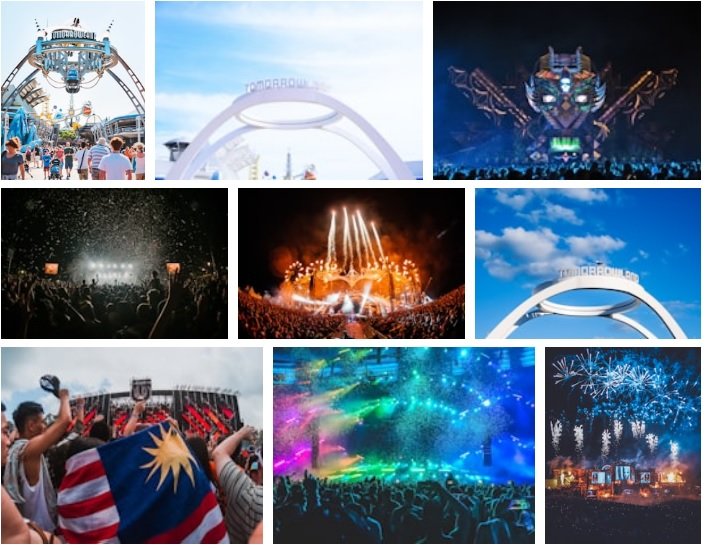Theater is an art form that has been around for centuries, captivating audiences with its ability to transport them to a different time and place. From ancient Greece to modern Broadway, theater has evolved into a multifaceted art form that combines drama, music, dance, and the visual arts. In this article, we will delve into the history of theater, explore its various forms and genres, and discuss the impact of theater on society and culture.
History of Theater or Play House
The origins of theater can be traced back to ancient Greece, where it was used as a medium for entertainment, education, and political commentary. The ancient Greeks created the first theatrical performances, including tragedies, comedies, and satires. These performances were held in open-air amphitheaters, and they featured actors wearing masks to portray different characters.
Over time, theater spread to other parts of the world, including Rome, China, India, and Japan. Each culture developed its own unique form of theater, incorporating elements of its traditions and customs. For example, Kabuki theater in Japan is known for its elaborate costumes, makeup, and stylized gestures.
Forms and genres of theater
Theater has evolved into a diverse and expansive art form, encompassing various forms and genres. Some of the most popular forms of theater include:
Musical Theater
Musical theater is a form of theater that combines singing, acting, and dancing. It emerged in the late 19th century and has since become a popular genre, particularly in Broadway shows. Some of the most famous musicals include “The Phantom of the Opera,” “Les Miserables,” and “Hamilton.”
Drama
Drama is a serious form of theater that explores social, political, and moral issues. It is often used as a means of social commentary and is known for its realistic portrayal of human emotions and experiences. Some of the most famous plays in the history of drama include “Hamlet” by William Shakespeare and “Death of a Salesman” by Arthur Miller.
Comedy
Comedy is a form of theater that is designed to make audiences laugh. It often relies on humor, satire, and parody to entertain audiences. Some of the most famous comedies include “The Importance of Being Earnest” by Oscar Wilde and “The Odd Couple” by Neil Simon.
Experimental
Experimental theatre is a form of theater that pushes the boundaries of traditional theater. It often incorporates elements of performance art, multimedia, and improvisation. It is known for its avant-garde approach to theater, challenging audiences to think outside the box.
Impact on Society and Culture
Theatre has played a significant role in shaping society and culture throughout history. It has been used as a means of political and social commentary, raising awareness about social issues, and promoting change. For example, the play “A Raisin in the Sun” by Lorraine Hansberry addressed issues of racial discrimination and segregation in America.
Entertainment and Cultural Enrichment
Theatre has also served as a source of entertainment and cultural enrichment. It provides a platform for artists to express themselves creatively, showcasing their talents and skills to a wider audience. Additionally, theater has been used as a tool for education, helping to teach audiences about history, culture, and the human experience.
Conclusion
Theatre is an art form that has stood the test of time, captivating audiences with its ability to transport them to different worlds and explore the complexities of the human experience. From ancient Greece to modern Broadway, theater has evolved into a multifaceted art form that continues to push boundaries and challenge audiences to think outside the box.
FAQs
What is the difference between musical play house and opera?
Musical play house combines singing, acting, and dancing to tell a story, while opera focuses primarily on singing with little or no spoken dialogue.
How has technology impacted play house?
Technology has allowed for new forms of play house, such as multimedia and virtual reality performances. It has also improved the production value of traditional, with advanced lighting, sound, and special effects.
Can theatrical performance be utilized as a means of social transformation?
Yes, it has been used throughout history to raise awareness about social issues and promote change. It provides a platform for artists to express their opinions and challenge societal norms.
What is Experimental Theatre?
Experimental Theatre is a form of Theatre that pushes the boundaries of traditional theater. It often incorporates elements of performance art, multimedia, and improvisation.
How has amphitheater influenced other art forms?
The audience plays an important role in theater as they provide feedback to the performers, and their reactions can impact the overall experience for both performers and audience members. Additionally, theater is often used as a tool for audience education, with shows designed to inform and engage audiences on specific topics or issues.
How has theater evolved over time?
Theater has evolved greatly over time, from ancient Greek plays to modern-day experimental theater. Styles, themes, and techniques have changed with the times, reflecting the social and cultural context of each era.
What is the difference between live and filmed performances?
Live performance allows for direct interaction between performers and audience members, creating a unique experience that cannot be replicated by filmed performances. Film, however, allows for greater accessibility and reach to a wider audience.
What’s its importance in education?
It provides students with a unique opportunity to learn through creative expression, team-building, and problem-solving. It also provides a platform for students to develop their communication skills and build self-confidence.
What is the future of theater?
The future of theater is uncertain, but it will likely continue to evolve and adapt to the changing cultural and technological landscape. It may incorporate new forms of technology or experimentation with performance styles, but the fundamental role of theater as a medium for storytelling and social commentary will remain the same.
What is the difference between a play and a musical?
A play is a form of drama that relies primarily on spoken dialogue to tell a story, while a musical incorporates singing, acting, and dancing into the storytelling.
Can it be enjoyed by all ages?
Yes, it can be enjoyed by people of all ages, as there are productions designed for different age groups.
What is the difference between theater and cinema?
Theatre is a live performance in front of an audience, whereas cinema is a recorded performance that is displayed on a screen.
How has Drama impacted society throughout history?
Throughout history, drama has had an impact on society by giving a forum for artists to express their thoughts and challenge traditional conventions, as well as raising awareness about social concerns and supporting change.














